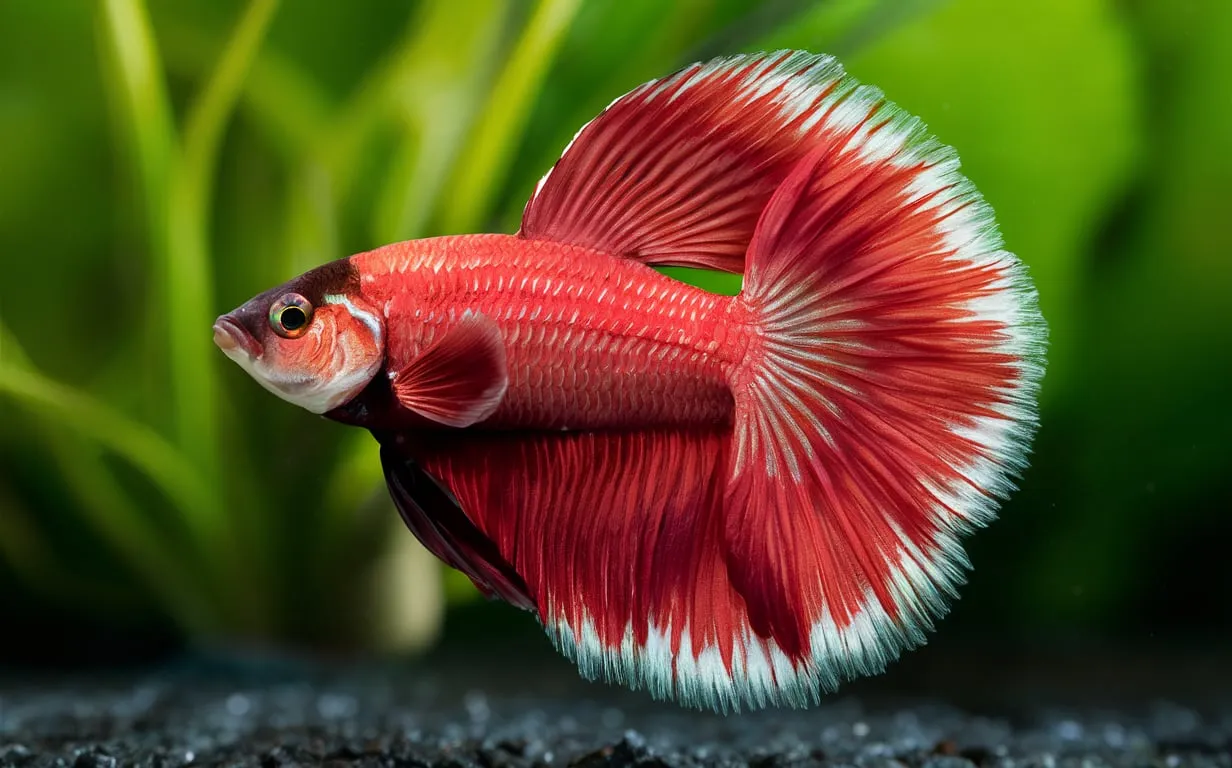Betta fish, also known as Siamese fighting fish, are a popular choice for aquarium enthusiasts due to their vibrant colors, unique personalities, and relatively low maintenance requirements. One of the most common questions about betta fish is how long they typically live. In this article, Betta Fish Tips will explore the average lifespan of betta fish and provide some tips to help extend their lifespan.

How Old Do Betta Fish Live?
The average lifespan of a healthy, well-cared-for betta fish is typically 2 to 5 years. However, their lifespan can vary depending on various factors, such as:
Water Conditions
Betta fish are sensitive to water quality and require a stable, clean environment to thrive. Neglecting water changes or allowing the water to become contaminated can significantly shorten their lifespan.
Diet
A balanced and varied diet is essential for betta fish. Feeding them a mix of high-quality pellets, freeze-dried or frozen foods, and occasional live foods can contribute to their overall health and longevity.
Tank Size
Betta fish require a minimum tank size of 2.5 gallons, but a larger tank (5 gallons or more) is preferable as it provides more space for the fish to swim and reduces the buildup of waste products.
Stress Levels
Betta fish are territorial and can become stressed by factors such as overcrowding, loud noises, bright lights, or the presence of other aggressive fish. Reducing stress in their environment can help them live longer.
Genetics and Health Conditions
Some betta fish may be predisposed to certain health issues or have shorter lifespans due to genetic factors. Purchasing your betta fish from a reputable breeder or seller can help ensure you’re getting a healthy fish.
Tips to Extend the Lifespan of Betta Fish
To help your betta fish live a long and healthy life, consider the following tips:
Maintain Optimal Water Conditions
Perform regular water changes (at least 25% per week) and use a high-quality water conditioner to remove chlorine and other harmful substances. Monitor water parameters such as pH, ammonia, nitrites, and nitrates to ensure they remain within the recommended ranges.
Provide a Varied and Nutritious Diet
Feed your betta a balanced diet of high-quality pellets, freeze-dried or frozen foods, and occasional live foods like brine shrimp or bloodworms. Avoid overfeeding, as this can lead to health issues.
Choose an Appropriate Tank Size
Opt for a tank that is at least 2.5 gallons, but preferably 5 gallons or more. This will give your betta enough space to swim and reduce the buildup of waste products.
Minimize Stress Factors
Keep the tank away from loud noises, bright lights, and other sources of disturbance. Avoid keeping your betta with aggressive tank mates, and provide hiding places and decorations to help them feel secure.
Monitor for Health Issues
Regularly inspect your betta for any signs of disease or illness, such as fin rot, ich, or swim bladder issues. Seek veterinary care if you notice any concerns.
What are some common health issues betta fish face?
Betta fish, also known as Siamese fighting fish, are a popular type of freshwater fish kept as pets. Some common health issues that betta fish can face include:
- Fin and tail rot: This is a bacterial infection that can cause the fins and tail to become discolored, ragged, and start to rot away. It can be caused by poor water quality or injury.
- Ich (Ichthyophthirius multifiliis): This is a parasitic infection that causes white spots to appear on the fish’s body and fins. If left untreated, it can be fatal.
- Swim bladder disorder: This can cause the fish to float at the top of the water, sink to the bottom, or swim erratically. It can be caused by overfeeding, constipation, or physical injury.
- Dropsy: This is a symptom of various underlying issues, often bacterial infections, that cause the fish’s body to swell up and scales to stick out like a pine cone.
- Betta lip: This is a deformity that causes the fish’s lower lip to become swollen and protruding. It is believed to be genetic.
- Betta gum disease: This is an infection of the gums around the teeth that can cause discoloration and decay.
Proper tank maintenance, water quality, and diet are important in preventing and treating these common betta fish health issues. Seeking advice from an experienced aquarist or veterinarian is recommended if a betta fish appears ill.
Conclution
By following these tips and providing your betta fish with a healthy, stress-free environment, you can help maximize their lifespan and enjoy their vibrant presence in your aquarium for many years to come.

Bài viết liên quan
How To Remove Fish Tank Smell
Maintaining a healthy and odor-free fish tank can be a challenge, especially for those new [...]
Jul
How Long Can A Betta Fish Live Without A Filter?
As a responsible betta fish owner, ensuring your pet’s wellbeing is of utmost importance. One [...]
Jul
Understanding Betta Fish And Bubbles
Betta fish, also known as Siamese fighting fish, are a popular choice for aquarium enthusiasts. [...]
Jul